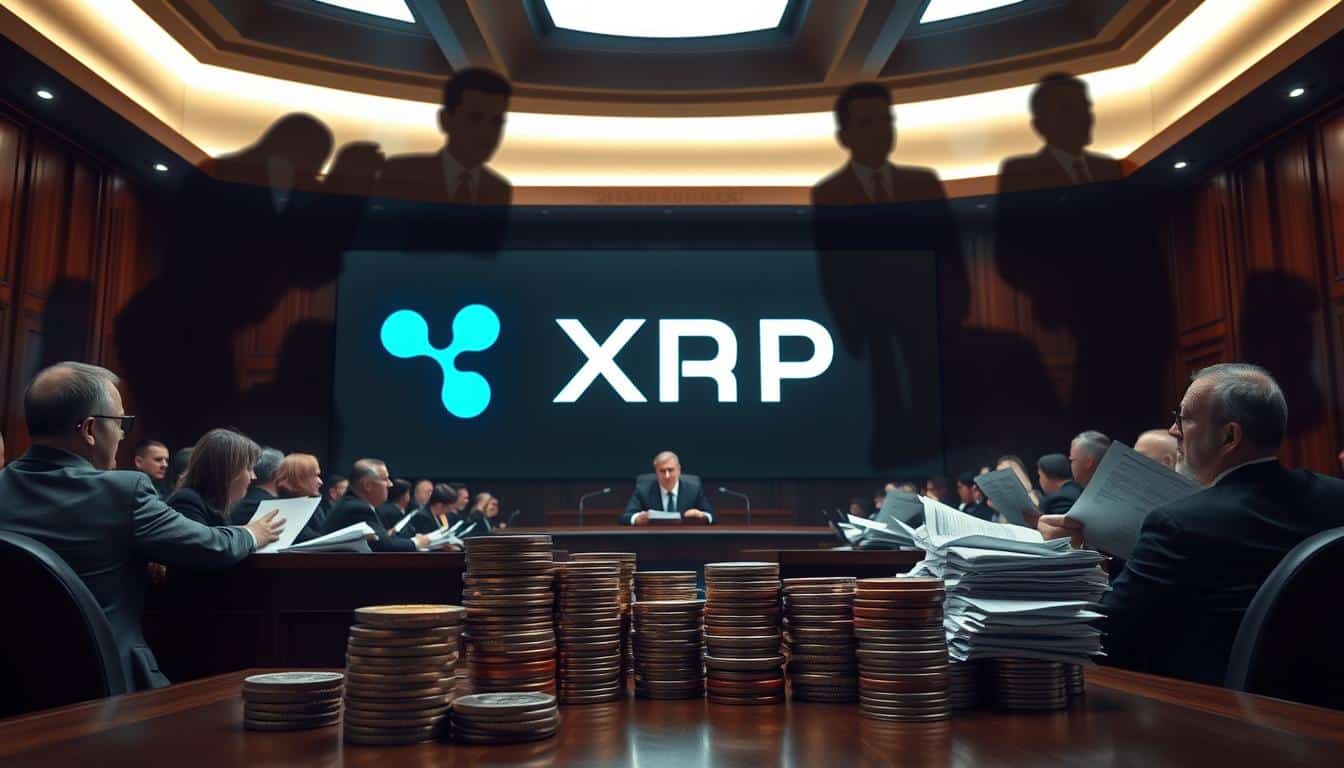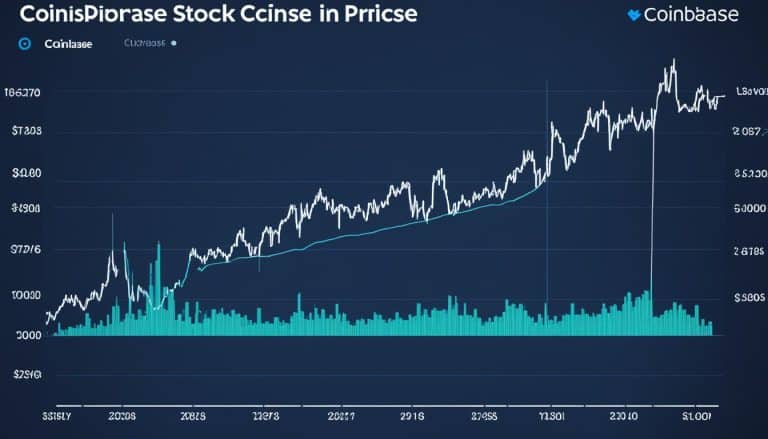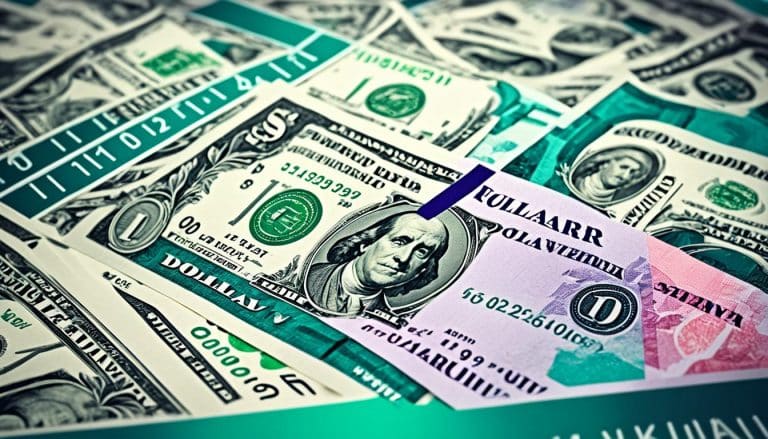Ripple XRP Lawsuit Update: Impact on Your Holdings
Ripple was hit with a $125 million fine by the U.S. SEC. This was way less than the original $2 billion they asked for1. This big drop in the fine could seriously affect your XRP. Despite this, Ripple’s currency, XRP, stayed pretty steady, priced between $0.55-$0.56 during the legal fight2. The decision by Judge Analisa Torres adds more twists. She said some XRP sales were like unregistered securities. Yet, she didn’t label the token itself as a security3.
This case brings big waves to the whole crypto market. It scares investors but also clears up some rules. If you have XRP or are thinking about buying it, it’s vital to grasp the lawsuit and market reactions. This knowledge is key to navigating potential ups and downs, delistings, price changes, and how Ripple plans to follow the rules.
Key Takeaways
- Ripple was fined $125 million by the U.S. SEC, a significant reduction from the requested $2 billion1.
- XRP’s price has experienced minimal fluctuations, trading within $0.55-$0.56 amid the lawsuit2.
- Judge Analisa Torres ruled that some XRP sales were unregistered securities, but not XRP itself3.
- The recent court decision may lead to greater regulatory clarity in the cryptocurrency industry1.
- XRP saw a brief 2% price increase following the July 2025 ruling2.
The Current Status of the Ripple XRP Lawsuit
The Ripple lawsuit is about the fight between Ripple Labs and the SEC. This case has gotten a lot of attention because it affects Ripple and the whole cryptocurrency market.
Introduction to the Ripple vs. SEC Case
The case started with the SEC saying Ripple Labs and its leaders sold over $1.3 billion in XRP illegally. They did this through sales that weren’t registered with the SEC, including to big investors4. The SEC argues XRP is a security, making things uncertain for the market.
Partial Victory for Ripple
Judge Analisa Torres made a notable decision in the Ripple case. She found that XRP isn’t a security when it’s sold to normal people on exchanges, which is good news for Ripple4. But the sales to big investors were illegal, so Ripple has mixed feelings. They have to pay the SEC $125 million, which is a lot less than what the SEC first wanted5.
Ripple’s CEO, Brad Garlinghouse, thinks the result is a win. After the court’s decision, XRP’s price went up 26% to 64 cents5. Over a week, it increased by over 38% to 61 cents, while Bitcoin only went up 12%4.
Now, everyone is looking at how Ripple’s big sales will be judged. XRP trading got busier recently, especially in South Korea. This is because people are curious about how the SEC’s case against Ripple will end5. The outcome will affect how digital assets are regulated and traded.
Key Takeaways from the Latest Court Ruling
In the ongoing Ripple court case, a recent ruling marked a major event. Ripple saw its fine greatly reduced. This offered relief to the company and its supporters.
Fine Imposed on Ripple
Ripple was told to pay a $125 million penalty. This was much less than the SEC’s first ask of nearly $2 billion6. The court cut the fine because big investors didn’t lose money. This was good news for Ripple, showing a win in its fight against tough rules.
Market Reaction to the Ruling
The market reacted well to the Ripple case decision. After the news, XRP’s value and sales went up. This showed more people were interested and confident in XRP6.
These events show how much the lawsuit has changed the market. The court said XRP isn’t a security on exchanges but is for big investors7. The SEC might appeal, making Ripple’s case more complex. It’s key to keep up with these changes in the crypto world.
The Significance of Judge Analisa Torres’ Ruling
Judge Analisa Torres’ decision is a big deal for Ripple and the crypto world. It clearingly outlines what’s okay and what’s not, helping Ripple and others. By differentiating programmatic and institutional sales, it gives a clear path forward.
Impact on Programmatic Sales
Judge Torres said programmatic sales of XRP don’t meet the Howey Test’s criteria for an “investment contract” under U.S. law8. This means Ripple’s sales on exchanges are now seen in a better light, reducing legal troubles. After this ruling, XRP’s price jumped to $0.9327 as the market saw the positive side8.
Implications for Institutional Sales
However, Ripple’s direct sales to big clients broke federal securities law, Judge Torres found9. This pointed out a need for these deals to be officially registered9. The ruling asks for clearer rules but also sets a compliance challenge9. The SEC wanted a $2 billion penalty, but the settlement was $102.6 million8. This outcome sets new standards for Ripple and crypto businesses, despite its challenges.
Alleviating Regulatory Pressure on Ripple
The recent Ripple v. SEC case decision has lessened regulatory pressure on Ripple. This marks a key moment for crypto regulation, giving Ripple Labs clearer direction.
The fine was initially set at $125 million, a significant drop from the SEC’s first $2 billion demand1011. This drop is a notable win for Ripple in their long four-year fight against the SEC10. Now, Ripple can focus more on its business and future growth.
The court decided that XRP sales to retail customers via exchanges didn’t break securities laws12. This point lessens regulatory stress, heightening confidence among Ripple and its backers. Following this, we might see XRP return to major crypto exchanges. This could boost its trading and market presence, hurt when exchanges dropped XRP in 2020 after the SEC’s lawsuit10.
This easing of regulations allows Ripple to widen its influence. Robinhood might add XRP, opening it to lots more investors1012. Big names like BlackRock could consider creating XRP ETFs. They would tap into XRP’s large community and trading volume to meet strong market demand1012.
Some think a deal with the SEC might make XRP’s price jump to $111. This boost is supported by the positive market response to Ripple’s recent court win, where XRP’s price went up by about 20%10
XRP’s Price Movement Post-Lawsuit Update
After Ripple scored a partial win in court, XRP’s price quickly went up by 20%13. But, this spike didn’t last long before XRP’s value evened out again13. Such a swift market reaction shows how legal news greatly affects XRP’s price.
Short-Term Price Volatility
XRP’s price has seen ups and downs due to the ongoing legal issues between Ripple and the SEC13. Ripple’s push for a lawsuit halt and the SEC’s mid-October decision deadline stir the pot more14. Market watchers are closely observing these events because they deeply influence Ripple’s market outlook.
Long-Term Price Predictions
Even with the ups and downs, XRP’s future looks bright. Many believe Ripple’s legal wins will lead to steadier, more reliable growth14. Ripple’s choice to potentially offer more than the fine amount into a lawyer-controlled bank account might also boost trust among investors14. This positive trend indicates good things for Ripple, making it more likely to be embraced globally.
| Factors | Impact on XRP Price |
|---|---|
| Partial Victory | 20% immediate increase |
| SEC’s Mid-October Decision | Increased short-term volatility |
| Long-Term Legal Clarity | Anticipated growth and stability |
XRP’s Reinstatement on Cryptocurrency Exchanges
The chance of XRP getting relisted on big cryptocurrency exchanges is growing due to recent legal wins for Ripple. Many people in the crypto world are excited about this. They believe it could greatly help XRP’s relisting and increase the flow of money in the market.
Major Exchanges Relisting XRP
In early 2021, big exchanges like Coinbase, Kraken, and Newton removed XRP because of legal issues15. But things are looking up. On November 15, 2025, after being gone for two years, XRP made a comeback on CEX.io16. This could mean that other big exchanges will also start to offer XRP again, helping it get back to its active trading days.
Increase in Liquidity and Volume
Putting XRP back on these exchanges should really help with the flow of money and the amount of trading. Since it was removed, XRP’s market activity went down, showing how big an impact regulations can have15. Relisting it could make XRP more available for trading and investing. This might make people more confident in the cryptocurrency market.
| Exchange | Date of Relisting |
|---|---|
| CEX.io | November 15, 2025 |
These good changes show that XRP is becoming more accepted, despite earlier problems. As more exchanges start to relist XRP, we expect to see a big positive change. This will make the cryptocurrency market more active and full of money.
SEC’s Potential Appeal and Its Consequences
The Ripple XRP lawsuit got a recent boost, but it’s not the end. The SEC may still appeal. This could keep Ripple and the crypto world in a tight spot. Let’s look at what this appeal could mean.
Legal Processes Involved in an Appeal
The appeal in Ripple’s case could drag on till 2025, due to the legal complexities17. A final word from the Supreme Court might even take until 2026 or more17. Both sides will bring heavy legal firepower, focusing on the Howey Test for XRP.
On July 13, 2025, the U.S. District Court decided XRP didn’t act like an investment contract in most situations18. This not only affects Ripple but the whole crypto industry.
Possible Impact on XRP
An SEC appeal means uncertain times ahead for XRP. This long fight could scare off investors and limit Ripple in the U.S. Despite a 20% jump in XRP value after the court’s decision17, legal changes might erase those gains. The appeal could also shake Ripple’s $35 billion market cap17, making XRP prices more unstable.
To sum it up, the Ripple lawsuit has moved forward, but an SEC appeal could bring new problems. Everyone involved should keep an eye on how this legal battle unfolds. It’s going to affect XRP and the future of digital currencies.
Ripple’s Future Business Operations
Ripple is focusing on the global market to lower its risks in the U.S. This move matches Ripple’s goal to expand and shows the value of its digital currency, XRP.
Expanding Beyond the U.S.
Ripple’s plan to grow globally is key to its future. It wants to grow abroad to balance the unclear rules in the U.S. Despite legal issues from the SEC, Ripple is pushing to grow in other countries. Ripple’s CEO, Brad Garlinghouse, has stated the company’s commitment to this global growth19.
Partnerships and Collaborations
Partnerships are crucial for Ripple’s success. They boost Ripple’s image and make XRP more useful. A lot of deals with banks worldwide help Ripple spread its technology and services. This is especially important where there’s a big need for digital payments, helping Ripple grow.
Ripple’s collaborations also help it avoid some U.S. rules. The goal is to create a strong network for easy cross-border payments. Ripple’s work with banks and fintech in Asia and Europe has brought a lot of attention. These efforts support Ripple’s international growth and its way of dealing with U.S. regulations19.
The fight over if XRP is a security continues, despite a win in California. The laws keep changing, but Ripple is ready to face these challenges with its global growth and partnerships. This situation makes the future unclear19.
Impact on Ripple’s On-Demand Liquidity Service
Judge Torres’ decision is key to Ripple’s future. It sets clear legal limits for Ripple. This is crucial for its On-Demand Liquidity service.
After the ruling, Ripple changed its strategy in the US. They stopped using XRP as a bridge currency. Instead, they started using Tether (USDT)20. This big change affected Ripple’s US customers. They had to switch to USDT because of the SEC’s order20.
Ripple also faced tough SEC rules and a big fine. They were fined $125 million by the SEC for breaking securities laws21. Now, Ripple must register its XRP sales. Or, they have to find other legal ways to do it21.
This change shows Ripple is trying to stay on top. They want to compete well while following the law. By working with non-US entities only, Ripple smartly navigates through strict rules20.
These steps show Ripple’s strong commitment. They want to keep their ODL service successful and lead in the market. After these changes, XRP’s price was $0.549. Also, its trading volume jumped by 235% in one day21.
In the end, Ripple’s story highlights the need for following rules and being flexible. Sticking to regulations is key to keeping their service alive in a changing legal world.
Market Sentiment and Investor Confidence
The Ripple community has seen a clear change in feelings after some recent events in the Ripple XRP lawsuit. This change has brought back trust from investors, making them more hopeful about XRP’s future. Even though Ripple was fined $125 million, it was much less than what the SEC first wanted. This helped improve feelings around XRP22. Also, the price of XRP jumped up a lot right after the fine was announced. This shows that investors are feeling positive again22.
Current Sentiment Among XRP Investors
Right now, XRP investors are feeling hopeful but careful. Despite facing ups and downs because of rules and regulations, there’s a new sense of hope. Experts say XRP’s feelings in the market are really affected by bigger trends and rules, like the SEC lawsuit23. Before a big meeting with the SEC, XRP’s price went up a lot because investors were guessing there might be a good agreement24. But when the meeting didn’t bring big news, prices went down as people started feeling unsure again24. This shows how investors are torn between hope and caution.
Future Expectations and Trust in Ripple
Looking forward, investors have big hopes as they wait for the final decision on the Ripple XRP lawsuit. Regulatory experts think that because the SEC is slow with its rules and Ripple is fighting hard, a quick agreement is unlikely24. But, if Ripple wins, XRP prices could really jump, which would make investors trust more24. Even though XRP has challenges like being too centralized and uncertain rules, it’s still seen as a risky but possibly rewarding investment23. Investors hope Ripple keeps earning their trust by following rules and managing the company well as it goes through these tough times. For more information on the lawsuit and what it means, you can check this link.
Legacy Institutions and Potential XRP ETFs
Legacy financial institutions are now eyeing XRP more than ever. The easing of regulatory concerns on Ripple, coupled with its recent win against the SEC, has made XRP more appealing. These developments, along with Ripple’s push for using XRP in cross-border payments, might boost investor gains25.
Judge Analisa Torres imposed a $125 million fine on Ripple, far less than the SEC’s huge $2 billion demand2627. This verdict has lifted market spirits, spiking XRP’s price by about 20%26. It opens doors for big players like BlackRock to consider creating XRP ETFs, inviting big investments into the crypto world.
These possible XRP ETFs could bring massive investments from institutions, making it easier for everyday investors to jump in. The recent decision to add XRP back to top exchanges, including Robinhood, has boosted its value and market desire even more26.
With legal clouds clearing, XRP’s path to being part of regular financial products looks promising. Companies like BlackRock may soon seek the SEC’s nod for XRP ETFs. This move could revolutionize institutional crypto investments and widen the path for its acceptance by the general public26.
Ripple’s Legal Team and Strategic Moves
Ripple’s skilled legal team plays a crucial part in their battle with the SEC. They have crafted a strong strategy and defense to lessen the lawsuit’s effects on their work and the wider crypto market.
Key Legal Strategies Adopted
Under Chief Legal Officer Stuart Alderoty, Ripple’s team adopted various smart strategies since December 21, 202028. A key move was focusing on programmatic sales. Judge Torres, on July 13, 2025, ruled these sales did not count as securities. This reduced Ripple’s fines and financial risks28.
They also worked to protect documents that might affect the market’s trust in Ripple29. This showed they were thinking ahead to keep the company stable.
Defense Tactics in Play
Ripple gained support from across the crypto world. For example, giants like Coinbase backed them against the SEC in January 2025 with amicus briefs28. Also, Ripple’s expansion in Singapore, by getting a license, showed they were growing despite legal challenges28. This move helped them deal with U.S. regulatory issues by growing globally.
In conclusion, Ripple focuses on smart legal moves and growing internationally. This shows they are dedicated to strong defense strategies. These efforts have kept them strong in the market and kept investors’ confidence up.
Long-Term Implications for the Cryptocurrency Industry
The recent Ripple XRP lawsuit verdict is a game-changer for the cryptocurrency industry precedents. It creates new benchmarks for upcoming legal cases. Judge Analisa Torres’ partial win for Ripple marks a key moment in shaping the regulatory impact on crypto.
Setting Precedents for Future Legal Cases
The Ripple court decision will significantly affect future legal cases in the crypto world. It provides important clues on how regulators might handle similar situations. Past encounters between the SEC and major crypto firms have already set some groundwork.
Now the Ripple case adds more details on how token sales and affiliations could be viewed by regulators. This will help bring about a clearer legal framework for the industry30.
Regulatory Clarity and Industry Growth
The verdict opens the door for more regulatory clarity, which could boost innovation and growth. The specific outcomes of the case give companies a clearer path for following the rules. This reduces the risks of heavy fines, like the $125 million Ripple faced for its actions26.
This could increase confidence among investors and companies, leading to more adoption. We might even see big financial players like BlackRock starting an XRP-based ETF soon26.
This ruling also lays the foundation for the development of industry standards. With clearer regulations, the crypto industry is set for strong growth. Less uncertainty means more room for new tech and investments.
Conclusion
Recent events in the Ripple XRP lawsuit mark a change for Ripple and cryptocurrency. The court ruled that XRP tokens sold in a certain way are not securities. This decision is a win for Ripple and shows a way forward31. At first, the SEC wanted nearly $2 billion, but Ripple will only pay a $125 million fine. This shows the court took a fair stance32.
Ripple’s CEO, Brad Garlinghouse, spoke about the fairness of the ruling. He stressed Ripple’s strong legal position despite scrutiny. Defending themselves cost Ripple over $150 million, showing their dedication to staying in the market and following laws31. Ripple had hoped for a smaller fine, but the $125 million judgment is still better than the SEC’s initial demands32. This outcome highlights Ripple’s role in shaping how regulations interact with cryptocurrency.
The market responded well, with XRP’s value going up after the decision. This boost has made investors more confident. But with the chance of an SEC appeal, Ripple stays ready for more legal battles31. This lawsuit’s resolution is crucial not just for Ripple but for the future of crypto regulation. For more in-depth information, click here.






 Bitcoin
Bitcoin  Ethereum
Ethereum  Tether
Tether  XRP
XRP  USDC
USDC  Solana
Solana  TRON
TRON  Lido Staked Ether
Lido Staked Ether  Dogecoin
Dogecoin  Figure Heloc
Figure Heloc  Bitcoin Cash
Bitcoin Cash  WhiteBIT Coin
WhiteBIT Coin  Cardano
Cardano  USDS
USDS  Wrapped stETH
Wrapped stETH  LEO Token
LEO Token  Hyperliquid
Hyperliquid  Wrapped Bitcoin
Wrapped Bitcoin  Monero
Monero  Binance Bridged USDT (BNB Smart Chain)
Binance Bridged USDT (BNB Smart Chain)  Chainlink
Chainlink  Ethena USDe
Ethena USDe  Canton
Canton  Stellar
Stellar  Wrapped eETH
Wrapped eETH  Zcash
Zcash  USD1
USD1  sUSDS
sUSDS  Hedera
Hedera  Litecoin
Litecoin  Dai
Dai  Coinbase Wrapped BTC
Coinbase Wrapped BTC  Avalanche
Avalanche  Shiba Inu
Shiba Inu  PayPal USD
PayPal USD  WETH
WETH  Sui
Sui  Toncoin
Toncoin  Rain
Rain  USDT0
USDT0  Cronos
Cronos  World Liberty Financial
World Liberty Financial  Tether Gold
Tether Gold  Polkadot
Polkadot  PAX Gold
PAX Gold  MemeCore
MemeCore  Uniswap
Uniswap  Ethena Staked USDe
Ethena Staked USDe